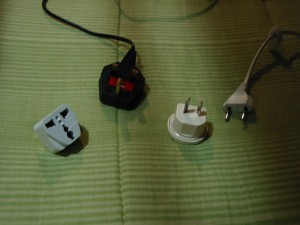Way to be late to the party, guys. The world’s least cutting-edge tech media source, Wired, has a decent overview of the hackerspace scene as it exists today in the United States, which this morning made the front page at Digg. I don’t have any major bones to pick with the article, except for the general tone that “Hey, this scene didn’t really matter until it started happening in the United States!”
There’s some acknowledgment of German and Austrian hackerspaces, but we get sentences like, “German and Austrian hackers have been organizing into hacker collectives for years, including Metalab in Vienna, c-base in Berlin and the Chaos Computer Club in Hannover, Germany”
The author of this article is lumping together Metalab, founded in 2006, c-base, founded circa 1995, and CCC, founded 1981(ish?) as though they’re all similar sorts of places. Metalab is relatively recent and operates on a model very much like the American hackerspaces: it’s a platform, with dues-paying members and resources for projects, but nothing in the way of its own agenda or ideology. c-base is much older, predating the late 90s tech boom, and with a great deal in the way of history and self-created mythos surrounding it. CCC predates even the World Wide Web, transcends any one specific location or space (with chapters active in several German cities) and probably belongs alongside institutions like 2600 as founding members of the 1980s hacker culture.
It’s great to see hackerspaces getting mainstream exposure, but it would also be nice to see more recognition of the long history and broad geographic reach of the scene. Say, for starters, a specific mention of any hackerspace outside of the United States, Germany, or Austria. I’ve definitely encountered grumbling from some European hackers about the US-centric nature of coverage of hackerspaces, or of groups (hackerspaces.org sometimes included) pushing an “American” model for hackerspaces. This model includes a rented or purchased space, relatively expensive membership dues (Wired quotes $40 per month as the “starving hacker rate” at Noisebridge, while some of the more anarchist European hackerspaces either have no “members” at all, or charge dues on the order of €15 per year) and fancy equipment (NYC Resistor has their own high-powered laser cutter—which is, admittedly, totally awesome).
I realize that Wired is a US-based media source, so it makes sense that they’d go to American hackerspaces to do interviews and get quotes. I guess it’s just that, as an American traveling abroad, I’m quite sensitive about trying not to fall into the American stereotype of bungling into a situation I don’t understand, and telling people to do it my way. Americans are very much latecomers to the hackerspace scene. In fact, even at the point when I was first proposing this project, in late 2007, most of the American hackerspaces mentioned in the Wired article did not exist yet. During one of my Watson interviews, I was asked, “Why do you need to leave the United States to do this project?” and I answered (at the time, honestly) “Because the kinds of places that I want to visit simply are not in America.”
Don’t get me wrong, I’m thrilled to see these types of places springing up across my home country, I just think the Americans would do well to remember that they are essentially re-inventing wheel, here.
EDIT: Also, since this is pretty much the first time I’ve ever specifically written about hackerspaces in the United States, I think it’s appropriate to throw out a plug for the newly-founded Pumping Station One, in my hometown of Chicago. My friend Dave recently interviewed Eric Michaud, one of the founders.



